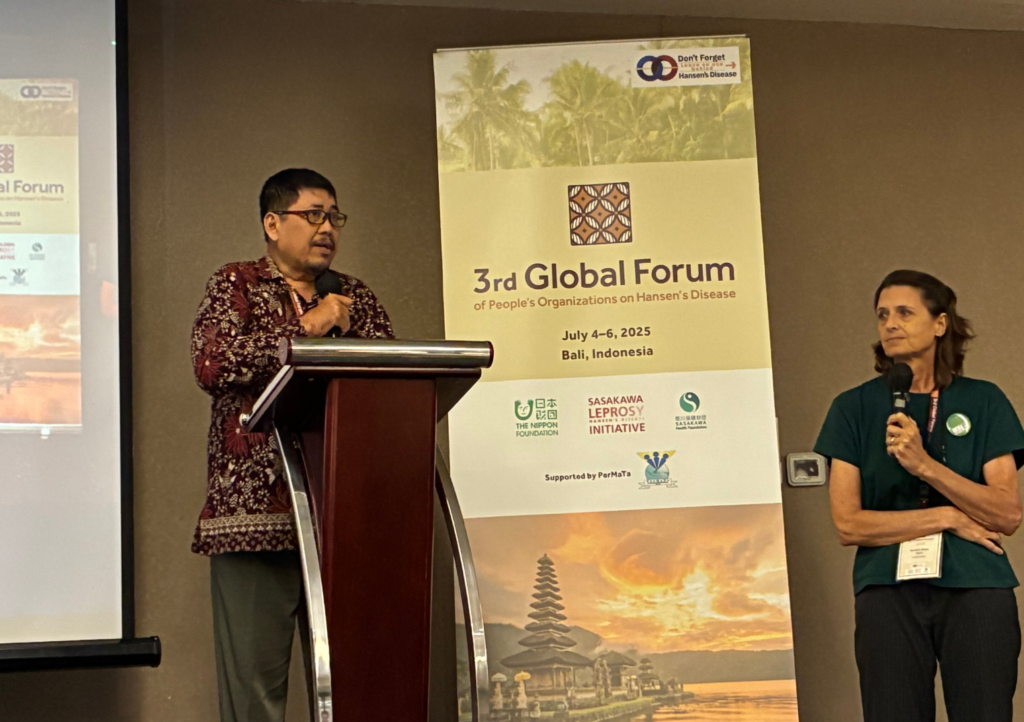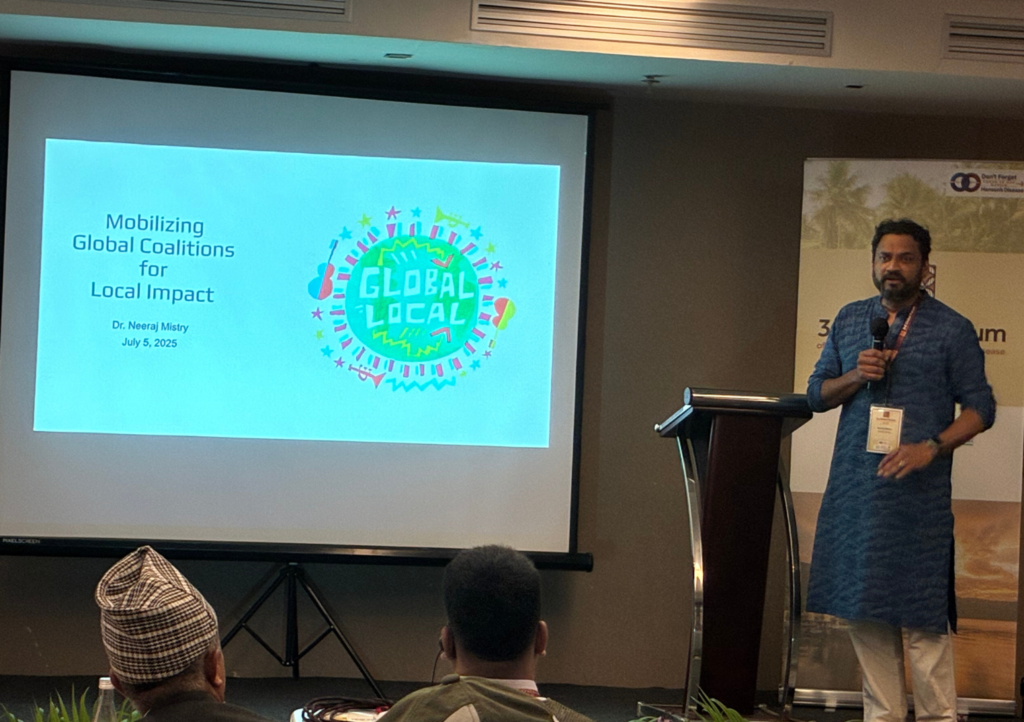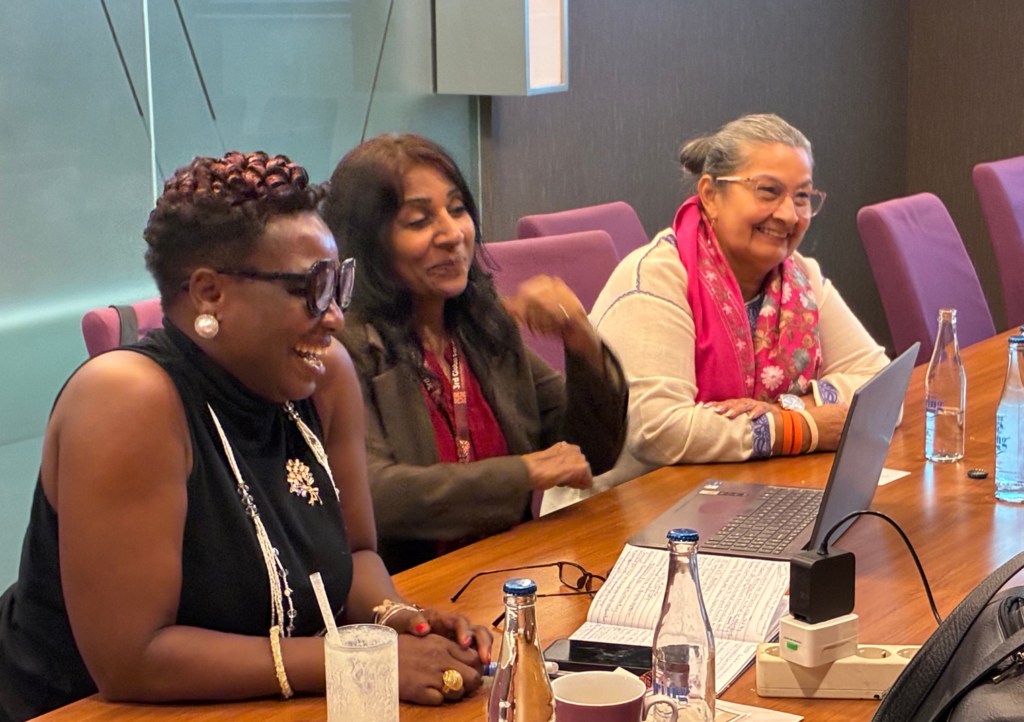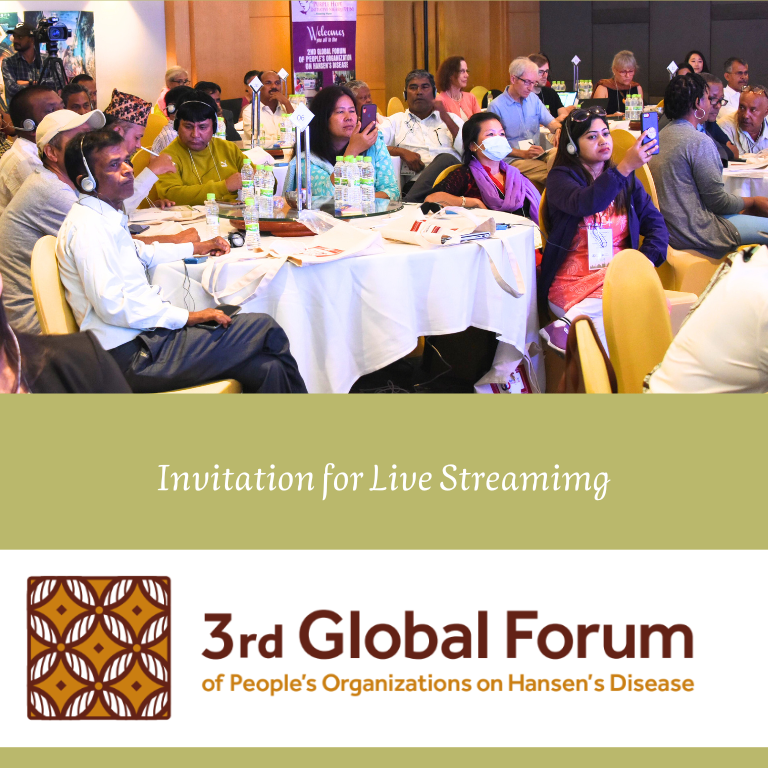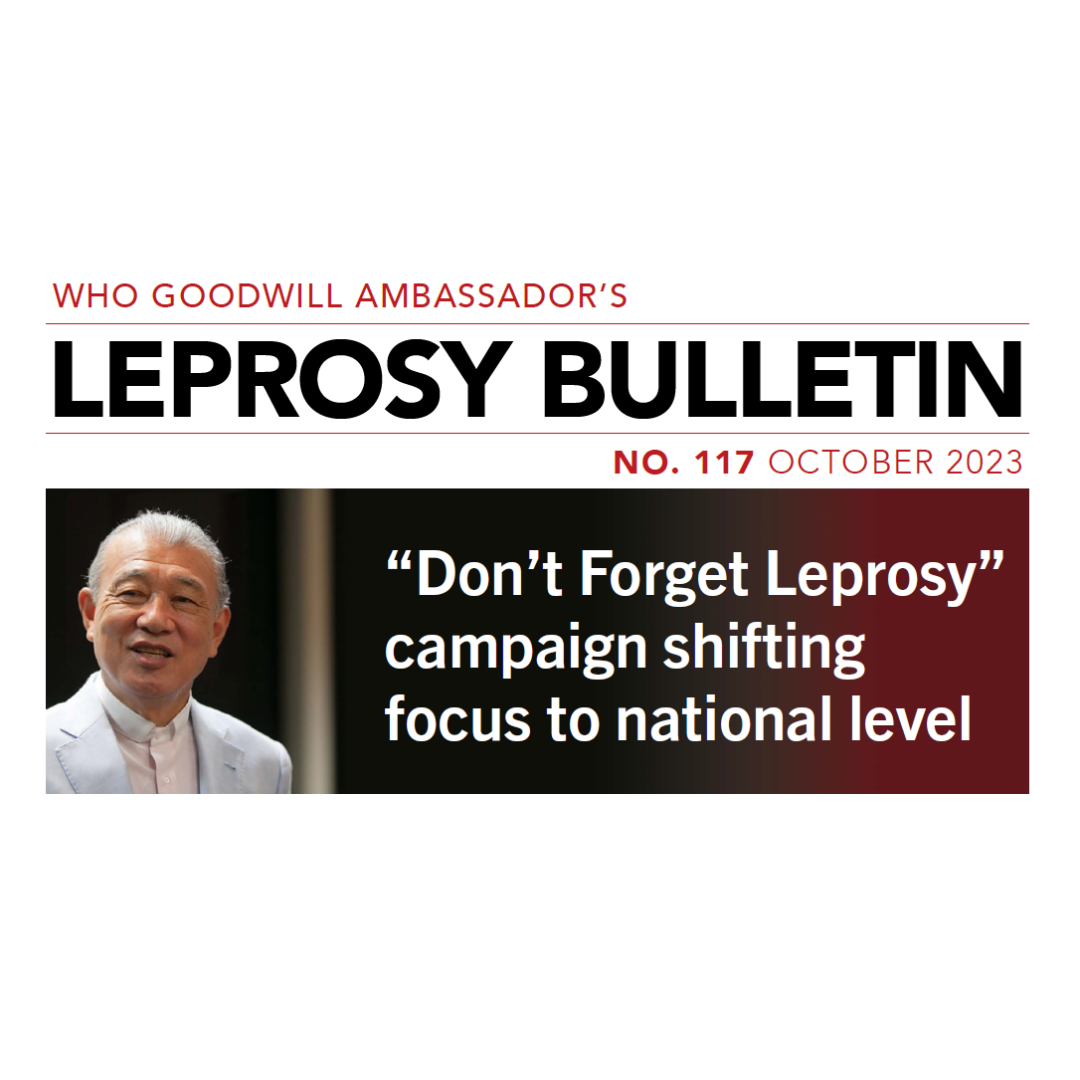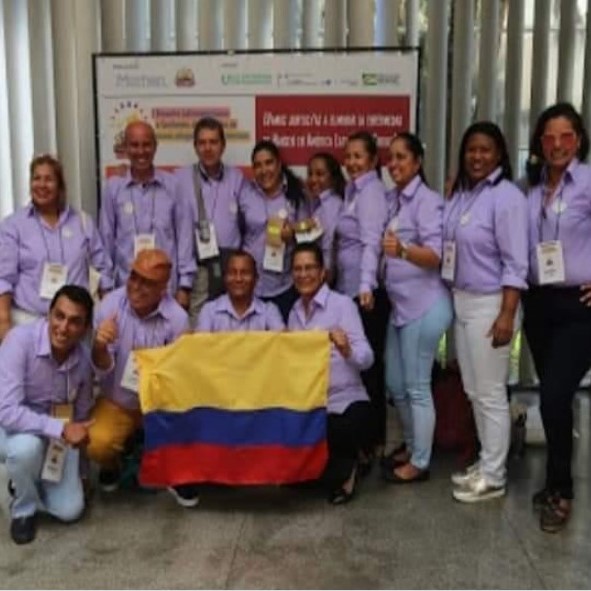From July 4 to 6, 2025, the 3rd Global Forum of People’s Organizations on Hansen’s Disease was held in Bali, Indonesia. Hosted by the Sasakawa Leprosy (Hansen’s Disease) Initiative, the forum brought together over 110 representatives from organizations of persons affected by leprosy based in 21 countries.
Building on previous gatherings in Manila (2019) and Hyderabad (2022), the 3rd Global Forum increased emphasis on actions taken before and after the event. Under the leadership of Dr. Alice Cruz, former UN Special Rapporteur and current human rights advisor to the Sasakawa Leprosy (Hansen’s Disease) Initiative, the forum was prepared over the course of a year in close collaboration with representatives of organizations of persons affected by leprosy. Nineteen of these organizations conducted needs assessments with support from the Sasakawa Health Foundation (SHF). Through surveys and analysis, they identified challenges and priorities specific to contexts in their home countries. They compiled their findings into reports, which then served as a foundation for discussion at the Global Forum.
Strategic scheduling of the Global Forum just before the 22nd International Leprosy Congress (ILC) created an opportunity for the people’s organizations to share their reports in poster form with researchers, program leaders, policymakers, and advocates from around the world.
The Global Forum produced three action-oriented documents and elected an Oversight Committee to promote implementation. These documents provided participants with concrete frameworks to take back to their communities as well as a formalized means of communication with other stakeholders so that they may be informed by the voices of persons affected by Hansen’s disease as they pursue zero leprosy.
Day 1
The Global Forum dedicated the first day to closed-door discussions exclusively for persons affected by leprosy, providing a safe, peer-led environment for open dialogue and reflection.
In the morning, participants shared the results of their preparatory needs assessments. Groups for discussion were designed to be cross-regional to encourage identification of shared challenges. Each group was assigned one facilitator and one note taker, and interpreters joined to support multilingual communication.
During the afternoon, the same groups worked intensively on responding to several guiding questions. The resulting discussions highlighted key changes needed to support persons affected by leprosy, including ending discrimination, enhancing mental health and rehabilitation services, and improving social inclusion. Ideas for accomplishing these changes focused on legal reforms, raising community awareness, integrating services, and empowering affected individuals. Related to the theme of empowerment, participants reflected on the capacity-building needs of their own organizations, including skills in advocacy, fundraising, digital literacy, and project management. They noted that, for sustainable growth, their organizations require ongoing support, digital tools, visibility, and strategic planning. They called for collaborative efforts to improve healthcare, legal frameworks, and social integration for marginalized communities.
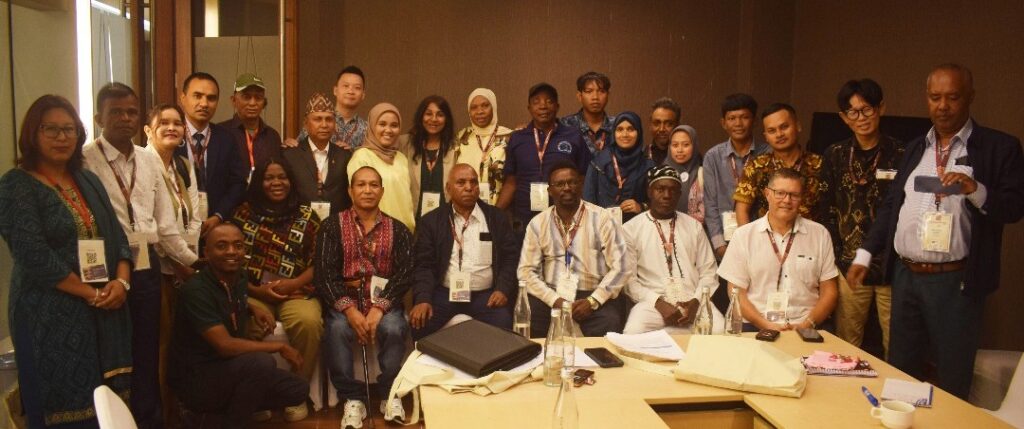
Day 2
The second day started with an official opening session and inspiring messages from six leaders. Mr. Al Kadri (PerMaTa Indonesia) honored the resilience of persons affected by leprosy and urged collective advocacy to eliminate the disease and reshape public perceptions. Invoking the example of HIV movements in Africa, Mr. Brent Morgan (The Leprosy Mission International) called for coordinated action, fronted by persons affected by Hansen’s disease, to end discrimination. Mr. Peter Waddup (The Leprosy Mission Great Britain) emphasized that leprosy is more than an illness, involving complex factors. Mr. Geoff Warne (ILEP) suggested strategies that persons affected by leprosy could use to shift power toward their communities and organizations. Dr. Beatriz Miranda (UN Special Rapporteur) spoke of her experience with a participatory action research project that started in Indonesia in 2010 and the many benefits of this approach for persons affected by leprosy. Dr. Takahiro Nanri (SHF) urged meaningful action and reminded participants that their voices represent many unheard people.
Later in the morning, experts and organizational representatives shared examples of successful advocacy practices and resource mobilization. Dr. Neeraj Mistry, a public health physician based in South Africa, presented examples of global coalitions that successfully tackled HIV and other diseases in order to prompt thinking about structures and strategies for generating a coordinated movement at all levels. The Nepal Law Society shared how their evidence-based approach to advocacy and lobbying is finding ongoing success in securing reform of laws that discriminate on the basis of leprosy.
The people’s organization HANDA (China) described how their organization shifted from foreign aid to local sustainability through diversified funding and community engagement. Leprosy People Association (Sri Lanka) spoke of empowering members by reviving cultural traditions and promoting self-reliance, which in turn helped them to gain social respect and government support. BRAC, an international development organization founded in Bangladesh, outlined transformations that they achieved through microfinance and social enterprises.
In the afternoon, persons affected by leprosy had the option to join another closed session. In five groups, they discussed the morning’s topics and shared their reflections.
Day 3
The third day of the Global Forum marked the culmination of collaborative efforts made over the previous days. The morning began with the presentation of group outcomes, reflecting the diverse insights and experiences of persons affected by leprosy and their organizational representatives from around the world.
A Drafting Committee, tasked with consolidating the outcomes into a collective statement, presented their efforts in the form of three documents:
- Letter of Commitment outlining shared values and unified intent
- Letter with Recommendations to Stakeholders to guide policy and programmatic responses
- Action Plan for Capacity-Building aimed at strengthening people’s organizations at the national, regional, and global levels
The Letter of Commitment establishes a shared vision for ensuring that persons affected by leprosy live with dignity, equal rights, and full participation in society. At the end of the Global Forum, six representatives from three regions were elected to establish the Oversight Committee outlined in the Letter. This committee has a mandate to monitor policy implementation and hold governments, donors, pharmaceutical companies, and intergovernmental agencies accountable. Two Drafting Committee members, Mr. Al Kadri of PerMaTa Indonesia and Ms. Evarestus Lilibeth Nwakaego of Purple Hope Initiative Nigeria, presented the documents at the ILC’s plenary session.
In the afternoon, eight representatives of stakeholder institutions and alliances¹ joined a roundtable discussion to provide feedback on the documents and to reflect on concrete ways that they could help with dissemination and support for realizing the documents’ goals. The non-hierarchical format facilitated a frank exchange. The Q&A period addressed matters of strategy and accountability, with emphasis on the position of persons affected by leprosy as the experts with lived experience who should be consulted at the point of policy creation.
The Global Forum concluded with a powerful speech by WHO Goodwill Ambassador for Leprosy Elimination Yohei Sasakawa. He praised the leadership of persons affected by leprosy and urged all stakeholders to act with urgency and unity. He also reaffirmed his personal lifelong commitment to eliminating leprosy and associated discrimination.
The Global Forum closed with heartfelt thanks to all participants, gratitude for a renewed sense of shared purpose, and a call to transform words into action.
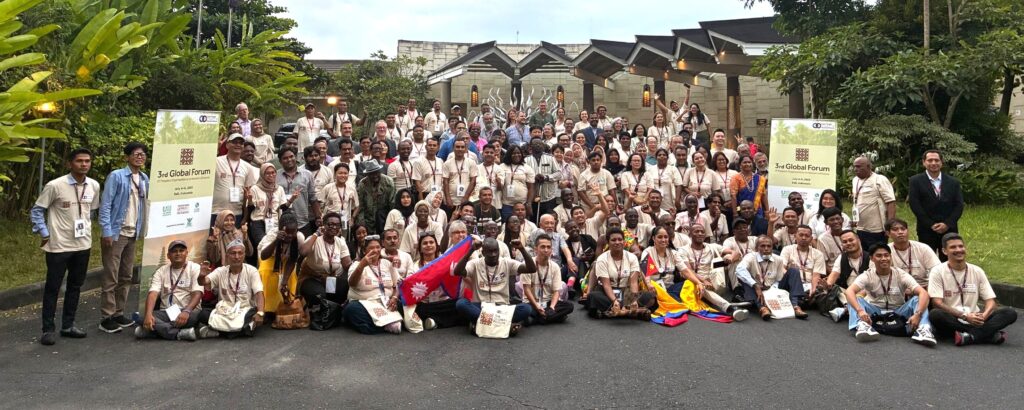
¹ Dr. Vivek Lal, Team Leader, Global Leprosy Programme, World Health Organization; Mr. Brent Morgan, President, International Federation of Anti-Leprosy Associations; Dr. Beatriz Miranda, United Nations Special Rapporteur on the elimination of discrimination against persons affected by leprosy and their family members; Dr. Regina Tiolina Sidjabat, Head, Neglected Tropical Diseases (NTD) Task Force, Ministry of Heath of Indonesia; Dr. M. Yulianto Listiawan, Chairman, International Leprosy Congress 2025; Dr. P Narasimha Rao, President, International Leprosy Association; Dr. Sunil Modali, Novartis Foundation; and Dr. Ritu Ghosh, Executive Director, Global Partnership for Zero Leprosy.
Video recording of 3rd Global Forum:
